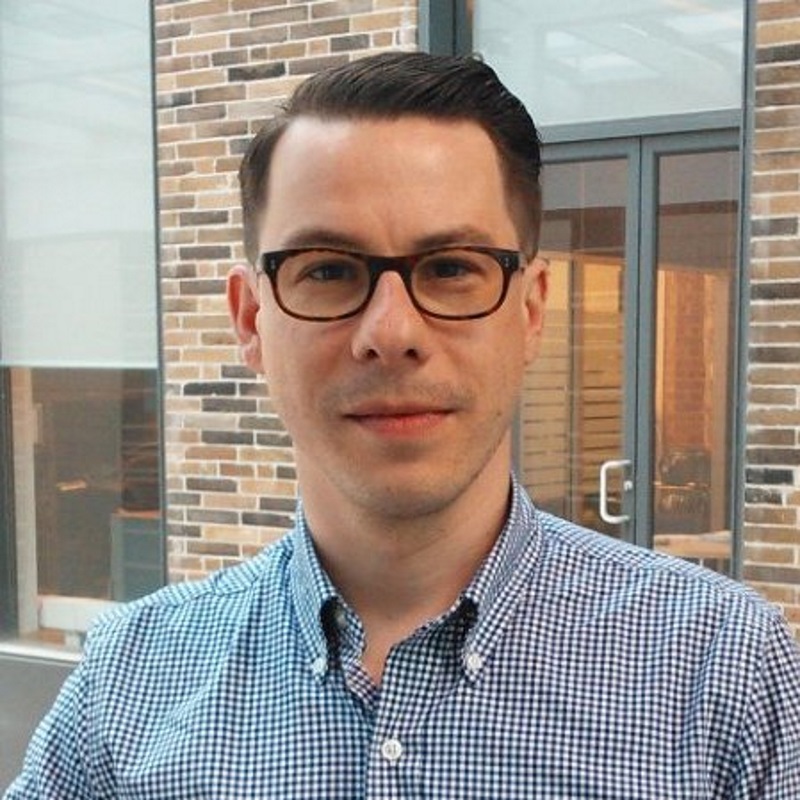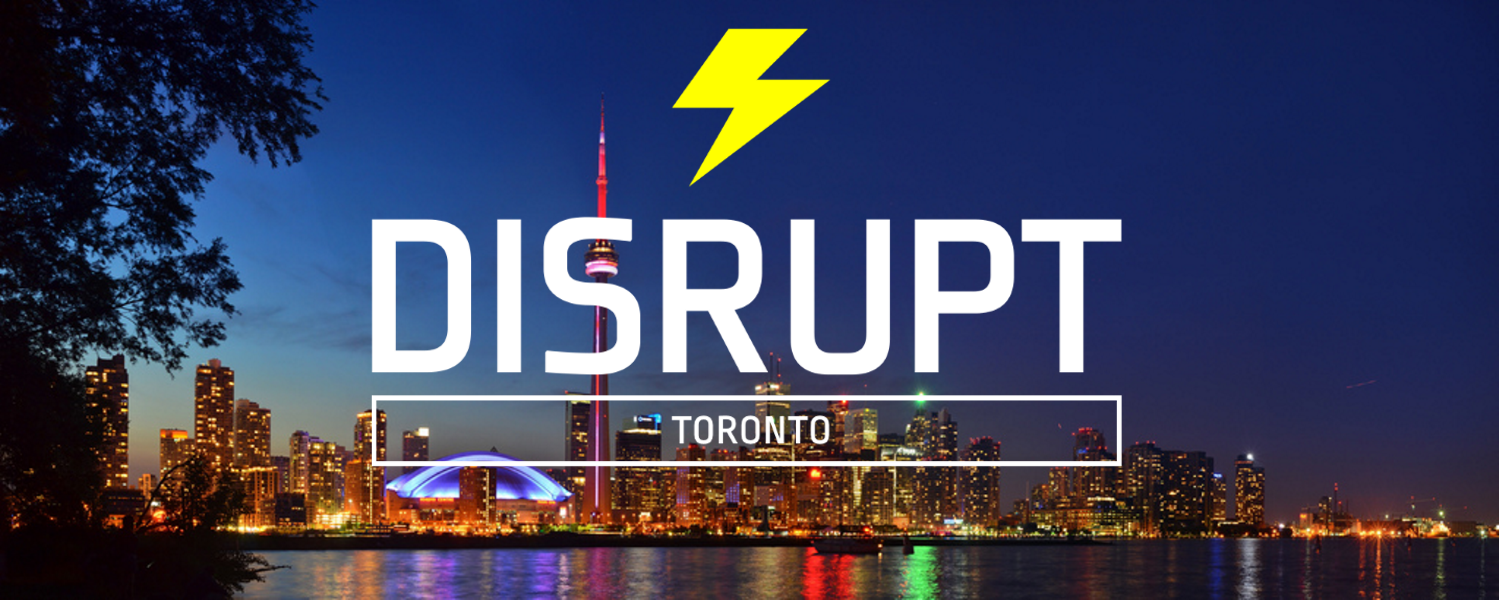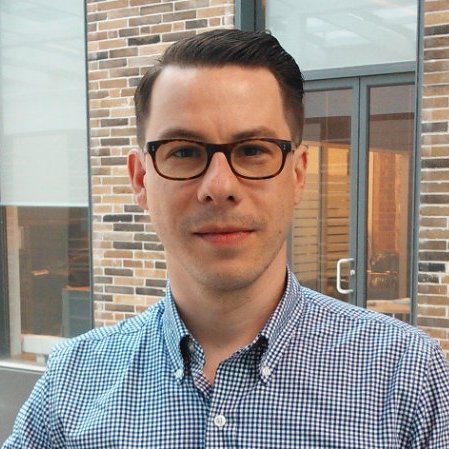

Read the HRchat podcast transcription:
Bill Banham: Today we are joined by Noel Webb. Noel is co-founder and CEO of Karen, the latest project from his role as Director of Product Innovation at Innosphere. During Noel’s career as a technology leader, he has developed a passion for products and innovations and has been the driving force behind products like; Tech and Design and TeamHQ. Noel, welcome to the HR Chat Podcast.
Noel Webb: Thank you very much for having me.
Bill Banham: Noel, what I didn’t mention in the introduction, is that you’re also a speaker at DisruptHR Toronto which is happening on December 1st 2016. Noel, we’re going to be focusing quite a lot of the chat today on DisruptHR Toronto and your session. Before we go down that route, tell us a bit about yourself. Tell us about your career history and how you came to be in your current role.
Noel Webb: It began just after I had finished university. I decided I didn’t really want to go and work for anybody else, so I started my own recording studio with my business partner, at the time. If any of you out there are familiar with owning and running a recording studio, they’re not the most profitable ventures. It was comprised of a bunch of different guys in this band, they were from ad agencies, they were professors at universities and so forth. Very, very quickly we were introduced into the world of the Agricultural Ad Agency and we were asked to come in and do a credentials presentation. By the end of that presentation, we landed our first gig with an agency. It was a little bit of audio work for them, as well as some technological work, doing some podcasts (and) some interactive design.
That was really where everything started for me. (Some) years and years later, as I was running my last company, I decided to turn my hand in trying and developing products. That was something that was really, really interesting to me and seeing how people were doing that. I got into developing a cryptocurrency product called QuikMint, at the time. This was quite in the early days of cryptocurrencies. The Canadian government and banks just didn’t know how to deal with it at the time, with all of your KYC and your customer compliance. What ended up happening was, right before launch, it very quickly got shut down by the banks requiring us to go deeper and deeper into having a compliance officer. It was a really murky, murky time in the world of cryptocurrency. The government turned around and the banks turned around and shut off.. many companies that were using banks with their cryptocurrency companies.
From there, I met Jeff Berardine, who is the CEO and President of Innosphere. He was an advisor for that particular start-up that I was getting off the ground. As it came to a close, we kept on discussing; what are the different kinds of things that we would like to develop or work on as products? Before you knew it, I was asked if I wanted to join Innosphere, as the Director of Product Innovation and to partner. That’s where we got started. We’ve been developing products here at Innosphere for just over two years and now we’ve landed on one that we think is going to be a hit. Oddly enough, many of the products that we’ve been developing up into this point has led directly into this direction.
Bill Banham: Okay, tell us a bit about Karen? What does it do?

Noel Webb: Karen is a cognitive recruiting assistant, what I mean by that is, it’s an artificial intelligence machine that we have designed to be able to read and disseminate the content of job requisitions and compare them directly against the submissions from job candidates. What we actually do, when we ingest a job requisition, we pull out key words and concepts and personality insights by doing Sentiment Analysis on the text and on the copy. We do the same with the candidate submission, as well. We compare the two and we’re able to score and rank each one of those that come out, each of the key words and each of the concepts that come out, to be able to short-list the candidate submissions to a recruiter. It saves from having to go through hundreds, if not, thousands of resumes and have it all done automatically for them, in an automated process, right within their applicant tracking system, within their current workflow.
It’s been interesting for us because what we’ve been doing as well, is there is a secondary service that ties into this that is Karen’s Chat Bot. That goes out and actually communicates with all of the candidates. Saving the recruiters, obviously a ton of time, you know, they don’t have to ask all of the repetitive questions anymore; about whether someone has a job, why they’re looking at moving from a job, but also Karen’s Chat Bot is able to actually provide the candidate with information about the company or the job requisition that they’re providing. We do a sentiment analysis on that, as well, and we pull out concepts from the responses from the candidates. We feed all of that back into our short-listing. The recruiters can basically go to sleep, wake up in the morning, and have a short-listed set of candidates that they can really focus their time and dig into and have conversations with all of them in a more meaningful and deeper way than what they would normally have the chance to, given the time to fill for a recruiter, so time from the point that the job is actually posted to filling that position. It’s a very important metric in HR and in recruiting.
Bill Banham: Let’s get away from that wonderful plug for Karen instead and let’s look at you and your role. What does an average working week look like for Noel Webb?
Noel Webb: Like with any start-up, I wear many, many hats. Everything from developing pitch text for VCs to product ideation to road mapping to looking after our budgets and our funding and looking at particular scope and costing models and stress testing all of those, as well. It’s quite a varied, very week doing things like interviews with you and that’s a part of my week, as well. Preparing press releases, you pretty much name it, on the 10,000 foot level, and I’ve got my fingers in it all.
Bill Banham: Now let’s focus on the other reason why we’re chatting today and that is DisruptHR Toronto. You’re going to be one of the speakers?
Noel Webb: Yeah.
Bill Banham: You are talking about something I’m fascinated about although I don’t know much it. (Which is) the (question) Is True AI Possible? Before we talk (about that), tell me what made you decide to be a speaker at DisruptHR Toronto?
Noel Webb: Luckily enough, as I was developing the last product, we had invented at TeamHQ, I had the chance to run into, and meet, Jeff Waldman who is a part of DisruptHR in Canada. We had a lot to talk about and he is a wonderful gentleman. We started talking about HR and particularly, recruiting and the challenges there. (From) some of the things that we were talking about.. it became very, very evident that we had a confluence and we had a very similar mindset that HR is completely ripe for disruption. There are many systems that are in place that are Legacy systems that have been around for a very, very long time. Just that the general mindset in HR is ready for that shift, there are a lot of HR professionals out there that are ready to make changes, they feel as though they’re a little bit in the dark technologically. That was why I decided to become a speaker for DisruptHR. Jeff recommended that I come in and talk and that was it. That was the decision.
Bill Banham: As I mentioned a moment ago, you’re going to be speaking (on the topic of) Is True AI Possible? Tell me about the session, what it’s going to involve, and are you going to have any slides with a picture of the Terminator on them?
Noel Webb: I may have a couple of slides with a picture of the Terminator on them. a few of my colleagues and friends have pretty much said that I will be responsible for the Terminator’s existence, which I don’t think is true. They have mentioned it a couple of times. The talk itself, particularly is going to be how we can disrupt the current HR systems with artificial intelligence. More particularly, is true AI possible? I will be defining.. what I feel that true AI actually is in the discussion. Inherently, one of the things that we want to discuss is the difference between being able to apply a predictive model or a judgement model and where AI is on that right now. Typically, computers have been able to crunch a lot of algorithms and come up with some semblance of a level of prediction but can they actually impart humanistic judgement on a particular set of copy or on a particular interaction, whether it be verbal in voice recognition and the sentiment analysis on that, or visual recognition and how that actually directly affects the HR space?
Bill Banham: So, you get five minutes, I don’t know if anybody has told you this, you get five minutes-
Noel Webb: (laughs) Yeah they have.
Bill Banham: It doesn’t seem like a heck of a lot of time to cover this topic. Tell me what unique challenges and opportunities a five minute session presents but also, as part of that, given that it’s such a complex topic, what are the key learnings that you hope people can take away from your session?
Noel Webb: I think what I will end up doing, because there is a bit of a challenge in the five minute presentation, slide by slide, automatically forwarded format, I’m going to keep it relatively high level and the intent of it actually to get people to think about all of the different ways they could possible use AI and what it’s current state in the industry is right now. There’s been a lot of misconception about what AI is and what AI can do within the media, particularly around use of the term, automation versus artificial intelligence and what that implies.
I think I’m going to keep it relatively high ground, see if I can get people to consider all of the different things that can happen. Then, try and open up a little bit of discourse around whether true AI is possible, after the actual presentation itself. Getting it within five minutes is going to be very, very difficult to get into all the nooks and crannies and all of the potential challenges and issues that the inference of AI and HR possibly has.
Bill Banham: Why do you think Toronto needs an event like DisruptHR?
Noel Webb: I have lived in Toronto for the past 11 years, and I’ve toured this great country many times with the band that I play with, as well. Honestly, I think, it’s one of the major cities in the country and for Toronto to be at the forefront and in a bit of a leadership role, within technology and HR, that voice needs to be heard. There’s’ no better place than a city like Toronto that’s inclusive of people and very, very many different mindsets and approaches to HR, as well as, all the disruption and learning that’s going on there. I think it’s incredibly important that Toronto host this, as well as, cities like Vancouver, Montreal, I’m not even sure if Calgary is on the map but Calgary might be an interesting one down the road.
Bill Banham: It certainly is, they’ve had a couple now. Would you say that Toronto is one of the major tech start-up (hubs) for HR software in North America? Obviously, you’ve got Silicon Valley and various places in California and Vancouver seems to be doing an amazing job and .. on the East Coast in the US. Would you say Toronto ranks highly in terms of places for innovation in the space?
Noel Webb: Absolutely, Toronto and all the way out to Kitchener, Waterloo. It’s an incredible hub for disruption, new ideas in the technological space. There’s a ton of HR software that’s coming out of this area and a lot of great innovation that’s coming out of Toronto and Kitchener, Waterloo.
Bill Banham: Perfect. Thank you. Any favorites? I’m just going to put you on the spot there, in the greater Toronto area or Southern Ontario. Your two or three favorite technologies that you’ve seen come out in the last two or three years.
Noel Webb: Oh wow, I don’t know if I’m allowed to talk with the one that I’m really excited about right now, unfortunately. A colleague of mine has a great company called Bilk and they’re a financial analysis tool. That’s a pretty incredible tool that they’ve developed over the past couple of years. That has nothing to do with HR.
Bill Banham: We’re coming towards the end of this particular episode. I’m very much looking forward to getting the opportunity to meet you in person at DisruptHR Toronto, but before we wrap-up for today, a couple of last questions for you. Firstly, are you attending or speaking at any other HR-related events in the next six to 12 months? If so, which ones? Why?
Noel Webb: Next year, there is going to be the IBM HR Summit in Toronto. I will definitely be attending that one. The reason that I’m going to that one, is the fact that not only are we partnered with IBM and using watts and then training watts and models for HR specifically to be able to release those APIs for the general consumption by the enterprise. We find that their events are incredibly well organized, the speakers are really dynamic, they have a lot of great things to say and a lot of insight into the space. In a way that I think, many HR professionals might not be used to hearing, they might not be used to thinking in particular ways as well. They really do get you to think. They do get you to walk away and see all of the different ways that you could possibly alter your workflow or alter your job or different software that you could start to impact within your job to make it a lot easier for you and for your team and for their broader corporation.
Bill Banham: Spoken like a true believer in AI. The software is coming, it’s replacing someone, right? We could’ve taken this conversation down a whole different route and talked about transhumanism. Maybe next time, perhaps we’ll have a special HR edition focused on transhumanism and the coming apocalypse, I don’t know. Does that sound simple? Finally, how can our listener’s learn more about you?
Noel Webb: If you go to Karen.ai, you can learn more about our product, Karen. Also, if you like, you can get ahold of me at noel@kren.ai, if you have any questions. We are actually in the process of onboarding pilot partners, so if there is anybody out there that is of the enterprise size or a larger recruitment company that’s interested in piloting Karen with your firm, feel free to get a hold of us as well. Or if you’re just intrigued and want to discuss a little bit more on how AI can change the sector.
Bill Banham: Noel Webb, thank you so much for being our guest today.
